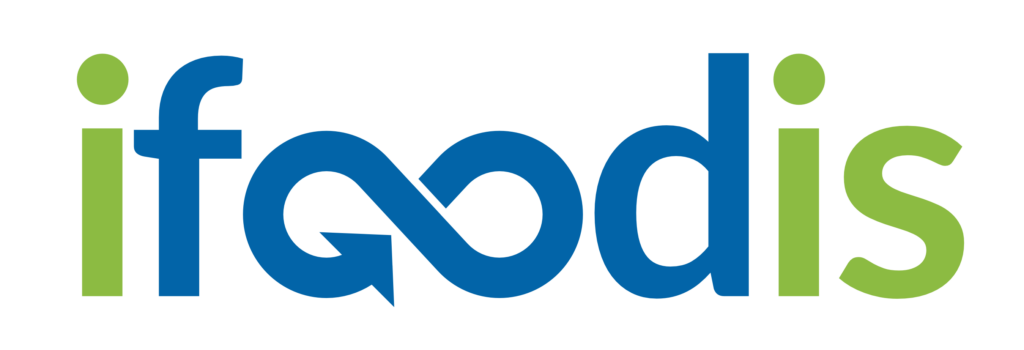
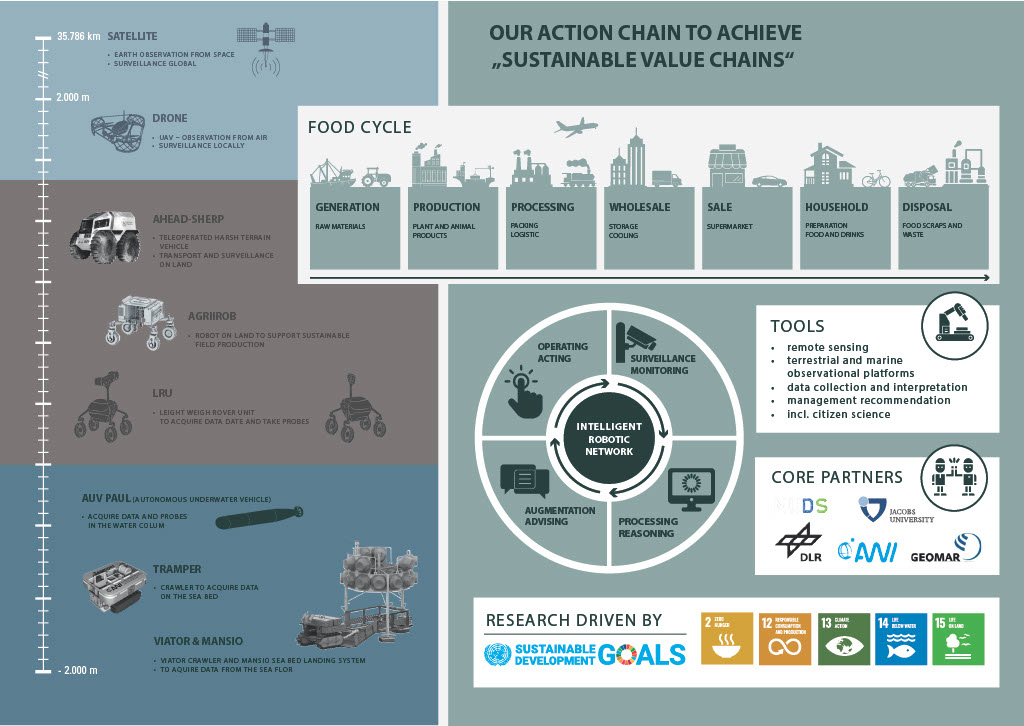
iFOODis contributes to the improvement of sustainable food production by establishing an intelligent robotic monitoring network for the continuous assessment of ecosystem health on land and surface waters in relation to agricultural activities. The synoptic observation of food crop state, agricultural ac- tivity and environmental parameters in the atmosphere, on land and in surface waters enables the de- velopment of management options and recommendations for authorities and policy makers based on a scientifically sound data base. To this end, iFOODis will encompass the development and application of satellite remote sensing as well as aerial, ground-based, and underwater robotic and sensor networks. This includes methods for data acquisition and interpretation, robotic semantic navigation and explora- tion, autonomous sampling and sensor deployment, robust wireless communication, ranging, and tim- ing, as well as data management aiming to collect relevant data in an efficient manner and use it to improve the situational awareness.
The iFOODis network is intended for three fields of application and is aligned with the “Sustainability Development Goals (SDGs)” of the “United Nations Development Program (UNDP)” as well as the guidelines of the international bodies for marine protection. The first application is envisaged for the Schlei-region (Baltic Sea, Germany), belonging to one of the areas most severely impacted by agricul- ture. We aim for a high and cost-efficient transferability of the network to other regions. Recommenda- tions will address, e.g., measures of how to improve ecosystem health in land and water, resource efficiency, strategies for land-use and fisheries. A further focus is on the remote-operated transport of food and material in flooded, harsh, and difficult-to-reach regions, where conditions could be hazardous to human operators. Lastly, a third use case of intelligent robots and observational networks is the grow- ing field of commercial agricultural robotics in land management and farming. Specific topics in robotics, data- and agricultural/environmental sciences will be addressed in the iFOODis Research School hosted by MUDS and JUB. iFOODis strives for a high transferability of technology and knowledge into the industry in the field of robotics and intelligent data processing as well as for an open-access data policy.
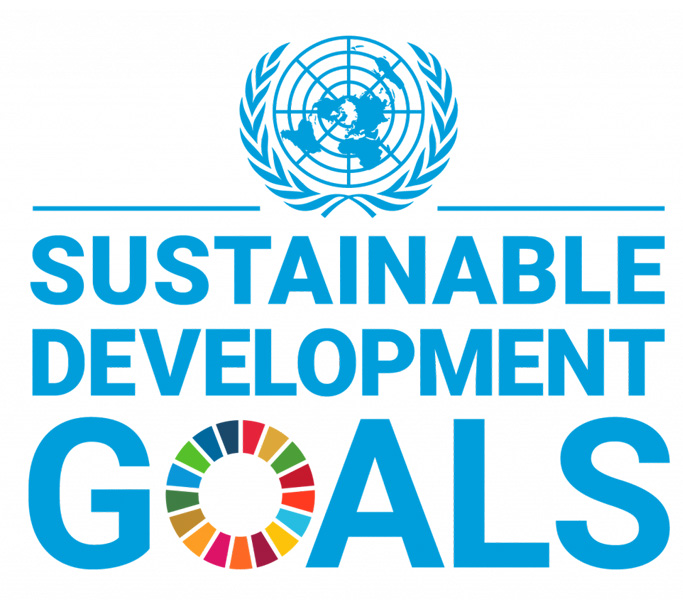
Sustainable Food Production
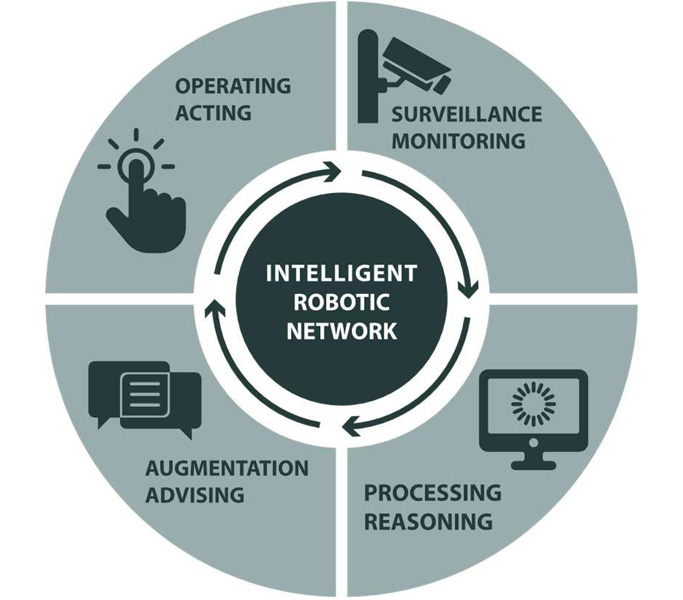
Intelligent Robotic Network
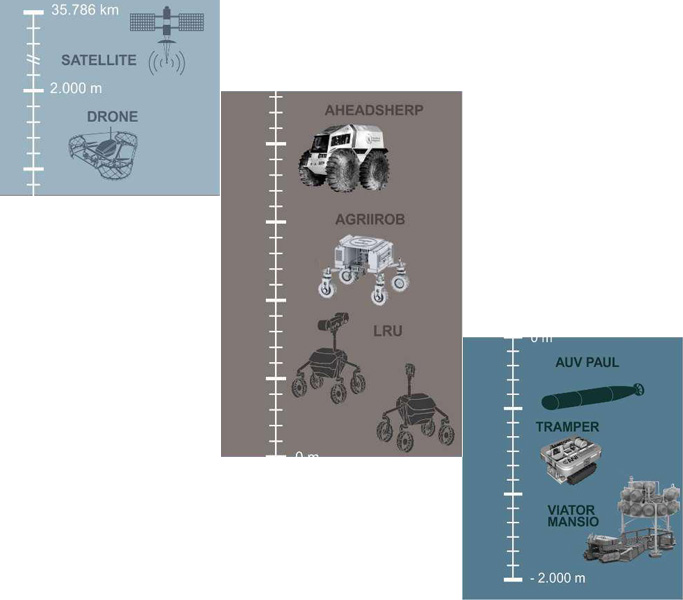
From Space, down to Earth and below
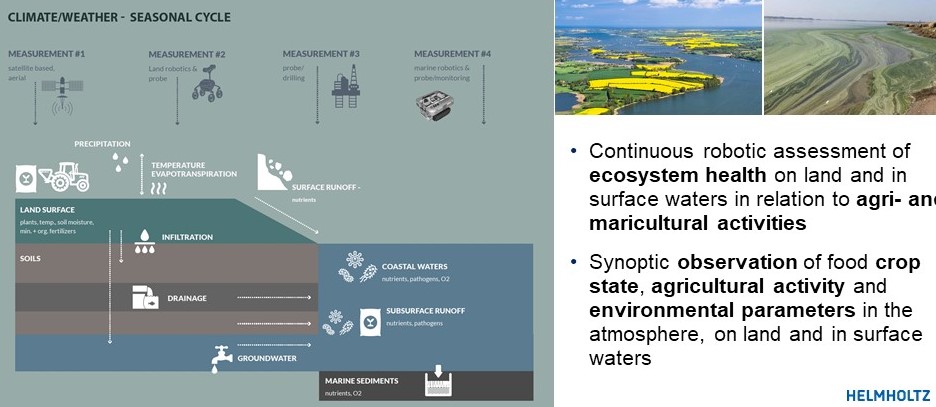
Economical and Technical Advancement




